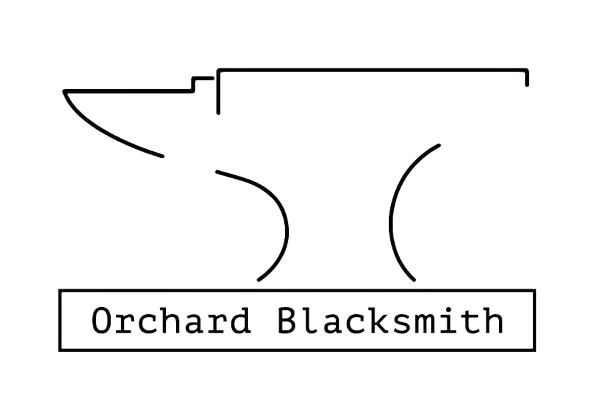Fuelling the Fire: Should You Forge with Gas or Coal?
One of the first big decisions every new blacksmith faces is choosing between a gas forge and a coal forge. Both have their strengths, and both can get the job done—but depending on your setup, your goals, and your style, one might be a better fit than the other.
Here’s a straightforward breakdown of the pros, cons, and considerations when picking your forge fuel.
Coal Forge: The Traditional Choice
Pros:
Precise Heat Control: You can move your workpiece around the fire and control the heat zone more easily.
Higher Max Temperature: Great for forge welding and working with larger stock.
Classic Experience: Many smiths enjoy the traditional process and feel more connected to historical forging methods.
Cons:
Smoke and Ventilation: Coal and especially bituminous coal produce smoke and fumes—you must have good ventilation.
More Mess: Coal forges produce clinker and ash that needs to be cleaned regularly.
Harder to Use in Residential Areas: Some neighbourhoods or cities restrict coal burning.
Gas Forge: The Modern Workhorse
Pros:
Easy to Light and Use: Just turn on the propane and ignite—it heats up fast and stays consistent.
Cleaner Operation: No smoke, no clinker, and much easier to use in enclosed or urban spaces.
Great for Repetition: If you’re doing lots of small-scale work or production forging, gas saves time and hassle.
Cons:
Less Heat Zoning: You can’t create localized hot spots like you can with coal. The whole chamber gets hot, so you have to work fast.
Size Limits: Most basic gas forges have limited space and may not be ideal for long stock without modification.
Fuel Cost: Propane prices can add up, especially if you’re forging often or running a large forge.
Which Should You Choose?
Ask yourself these questions:
Where will you be forging?
Backyard with space and airflow? Coal is an option. In a garage or shed? Gas is probably safer and cleaner.What kind of work will you be doing?
If you want to learn traditional blacksmithing techniques or do forge welding, coal may be worth the effort.
If you're focused on knife making, tool work, or efficiency, gas is hard to beat.Are you new to blacksmithing?
Many beginners start with a small gas forge because it’s simple, fast, and requires less setup and clean up.
Pro Tip: You Don’t Have to Pick Forever
Many experienced smiths eventually use both. A gas forge for general work, and a coal forge for specialty tasks or larger pieces. If you're serious about the craft, you might find both have a place in your shop.
Final Thoughts
Whether you're drawn to the roar of propane or the glow of a coal fire, the most important thing is to start. Choose the forge that fits your current needs and workspace. You’ll learn the rest by swinging the hammer and listening to the steel.
Whichever path you take, the fire’s waiting.
